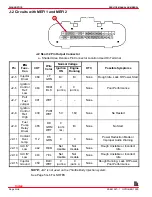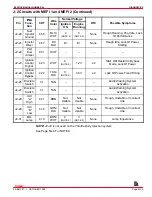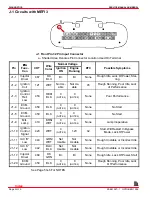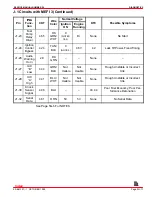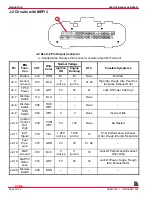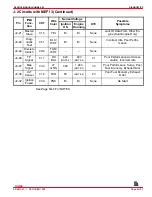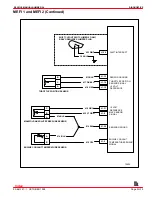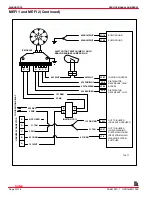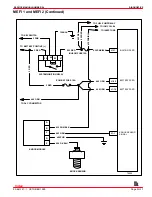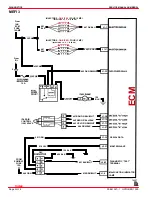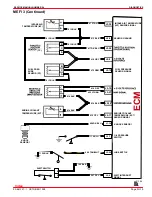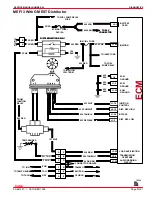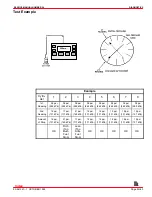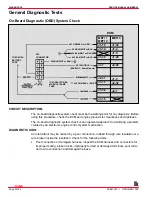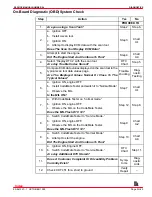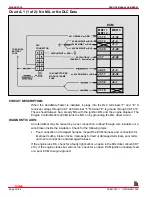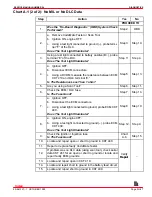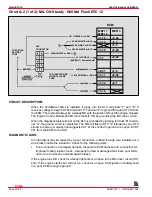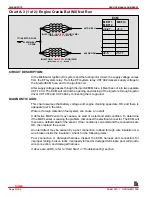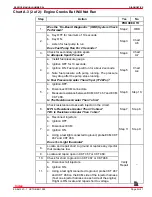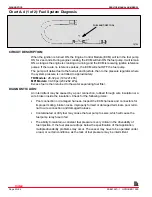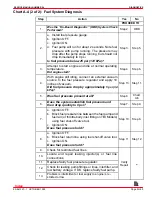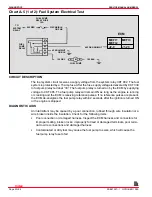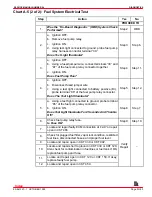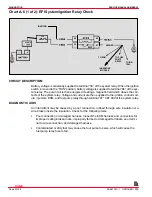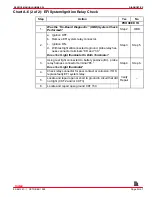
DIAGNOSTICS
SERVICE MANUAL NUMBER 24
Page 5G-22
90-861327--1 OCTOBER 1999
Injector Balance Test (Multi-Port Models)
Test Procedure
The injector balance tester is a tool used to turn the injector ON for a precise amount of time,
thus spraying a measured amount of fuel into the manifold. This causes a drop in fuel rail
pressure that we can record and compare between each injector. All injectors should have
the same amount of pressure drop. Injector testers are available for various manufacturers.
For 454 and 502 engines; the tester must be capable of selecting an injector pulse width
in the range of 200-400 milliseconds (msec). The recommended starting point for these en-
gines is approximately 300 m sec. In any case, a pulse width that drops the fuel rail pressure
to half the normal operating pressure should be used.
STEP 1
Engine cool down period (ten minutes) is necessary to avoid irregular readings due to “heat
soak” fuel boiling. Relieve fuel pressure in the fuel rail as outlined in “Fuel Pressure Relief
Procedure” in “Repair Procedures.” Remove plenum as outlined in “Repair Procedures.”
With ignition OFF, connect fuel pressure gauge to fuel pressure tap.
Disconnect harness connectors at all injectors and connect injector tester to one injector.
Use adaptor harness furnished with injector tester to energize injectors. Follow manufactur-
er’s instructions for use of adaptor harness. Ignition must be OFF at least ten seconds to
complete ECM shutdown cycle. Fuel pump should run about two seconds after ignition is
turned ON.
At this point, insert clear tubing attached to vent valve into a suitable container and bleed
air from gauge and hose to ensure accurate gauge operation. Repeat this step until all air
is bled from gauge.
STEP 2
Turn ignition OFF for ten seconds and then ON again several times to get fuel pressure to
its maximum. Record this initial pressure reading. Energize tester one time and note pres-
sure drop at its lowest point. Disregard any slight pressure increase after drop hits low point.
By subtracting this second pressure reading from the initial pressure, we have the actual
amount of injector pressure drop.
STEP 3
Repeat Step 2 on each injector and compare the amount of drop. Usually, good injectors
will have virtually the same drop. Retest any injector that has a pressure difference of 1.5
psi (10 kPa), more or less than the average of the other injectors on the engine. Replace
any injector that fails the retest. If the pressure drop of all injectors is within 1.5 psi (10 kPa)
of this average, the injectors appear to be flowing properly. Reconnect them and review
“Troubleshooting.”
NOTE: The entire test should not be repeated more than once without running the engine
to prevent flooding. (This includes any retest on faulty injectors.)
Index

